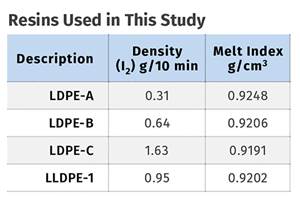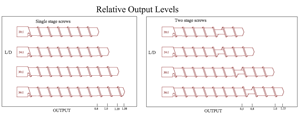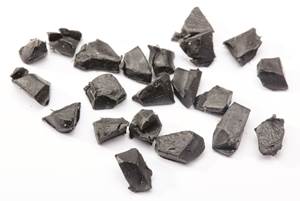Catch a Falling Company
Peter Schulz had recently retired from Hoechst Celanese in Dallas, and Richard Nurse was a consultant, when both were called in to help shape up BPI Packaging Technologies Inc. in North Dighton, Mass.
Peter Schulz had recently retired from Hoechst Celanese in Dallas, and Richard Nurse was a consultant, when both were called in to help shape up BPI Packaging Technologies Inc. in North Dighton, Mass. That was two years ago. Since then, they’ve refocused the operations of the failing film and bag maker, let go of several unrelated businesses, brought in outside investors, and hired new managers. They’ve also become part owners of the revitalized firm. Schulz is now president and Nurse is v.p. of manufacturing. James Koehlinger, who rejoined the company as a financial consultant, is now the chief financial officer. The new managers and DGJ Group, a Chicago investment firm, invested $10 million over the past 14 months and successfully turned the company around—but not without a few bumps.
What saved BPI was the quality of its equipment. It wasn’t brand new or in good repair, and much of it was standing idle. But it was all top of the line and had the potential to run 40 million lb/year of the firm’s unusual product. BPI uses tight temperature control to make thin (0.35-0.6 mil) HMW-HDPE film that is distinctive for its high clarity. BPI converts this film into bags.
The new owners’ first move was a bootstrap push for productivity. Before they took over, BPI made about 1.5 million bags/day over three shifts, five days a week. Half to two-thirds of the machines were always idle, Schulz recalls. “Parts had been cannibalized from some machines to keep other ones running.” So the managers invested $1 million in new hardware. All eight blown-film lines, 12 bag machines, five flexographic printing presses, two reclaim lines, and two slitters were brought back in production. The firm also began hiring more workers.
Too far, too fast
By last June, productivity had tripled to 4-5 million bags/day, while still running five days a week. Sales grew so quickly that the managers felt they needed to add production shifts. So last July, the plant switched to 12-hr shifts, seven days a week. It was a leap too soon, Schulz admits. Before the change, BPI had added 105 new employees to a core of 77 experienced operators. Unfortunately, the new work week diluted the presence of experienced workers among the untrained ones. As a result, productivity plummeted to less than it had been with a five-day week. Scrap levels and equipment downtime both soared. There were also more minor accidents—cuts, bruises, and sprains—but no serious injuries.
“In retrospect, we should have continued three-shift operation for another two or three months while the experienced workers trained the new ones,” Schulz says. In September, BPI brought in an experienced extrusion manager, Jay Shapiro, as v.p. of operations to sort out the production logjam. He started by enlisting BPI’s machinery and materials suppliers to come into the plant and train the workers. Employees couldn’t be spared during shift time, so they had to train on their days off.
Suppliers lend a hand
BPI has four blown film lines from Hosokawa Alpine American of Natick, Mass., and four from Kiefel Inc. of Wrentham, Mass. Both companies sent trainers to spend a week or more giving operators both classroom and hands-on instruction on how to clean screws, change and tune dies, and adjust bubbles, IBCs, and collapsing frames. Lemo in Enfield, Conn., the supplier of BPI’s bag machines, gave a week-long course on setting up the servo-driven, high-speed lines, which change products several times a week. Houston-based Fina Oil & Chemical Co. taught classes on resin rheology and how die gap, BUR, neck height, and die size relate to film properties like dart impact and tear strength. Ink supplier Coating Adhesives Inc. in Georgetown, Mass., taught operators about doctor blades and anilox rolls and how to find the causes of print-quality problems.
Part of what motivated employees to train on their own time was the openness with which the plant is run, Shapiro says. Computers on the shop floor show employees the same operating and productivity statistics that Shapiro studies on his office laptop. Employees do watch those numbers, Shapiro says. “It’s not a competitive thing like ‘My shift did more than your shift.’ They’re looking at the whole picture. Sometimes one of them will stop me and point out a way to change a procedure, and 99% of the time they’re right.”
The plant’s managers showed no less commitment than the operators. Shapiro himself teaches training classes several days a week, and managers work 14-hr days, including holidays and weekends. BPI worked right through last Thanksgiving and Christmas, though shifts were cut back to 6 hr, so everyone had some time at home. Managers gave shift foremen Thanksgiving Day off and put in 12-hr shifts themselves. All this sweat paid off: Production is now up to 8 million bags/day.
Related Content
Formulating LLDPE/LDPE Blends For Abuse–Resistant Blown Film
A new study shows how the type and amount of LDPE in blends with LLDPE affect the processing and strength/toughness properties of blown film. Data are shown for both LDPE-rich and LLDPE-rich blends.
Read MoreHow Much L/D Do You Really Need?
Just like selecting the extruder size and drive combination, the L/D should be carefully evaluated.
Read MoreAvoid Four Common Traps In Granulation
Today, more than ever, granulation is an important step in the total production process. Our expert explains a few of the many common traps to avoid when thinking about granulators
Read MoreHow Polymer Melts in Single-Screw Extruders
Understanding how polymer melts in a single-screw extruder could help you optimize your screw design to eliminate defect-causing solid polymer fragments.
Read MoreRead Next
Advanced Recycling: Beyond Pyrolysis
Consumer-product brand owners increasingly see advanced chemical recycling as a necessary complement to mechanical recycling if they are to meet ambitious goals for a circular economy in the next decade. Dozens of technology providers are developing new technologies to overcome the limitations of existing pyrolysis methods and to commercialize various alternative approaches to chemical recycling of plastics.
Read MoreLead the Conversation, Change the Conversation
Coverage of single-use plastics can be both misleading and demoralizing. Here are 10 tips for changing the perception of the plastics industry at your company and in your community.
Read More























